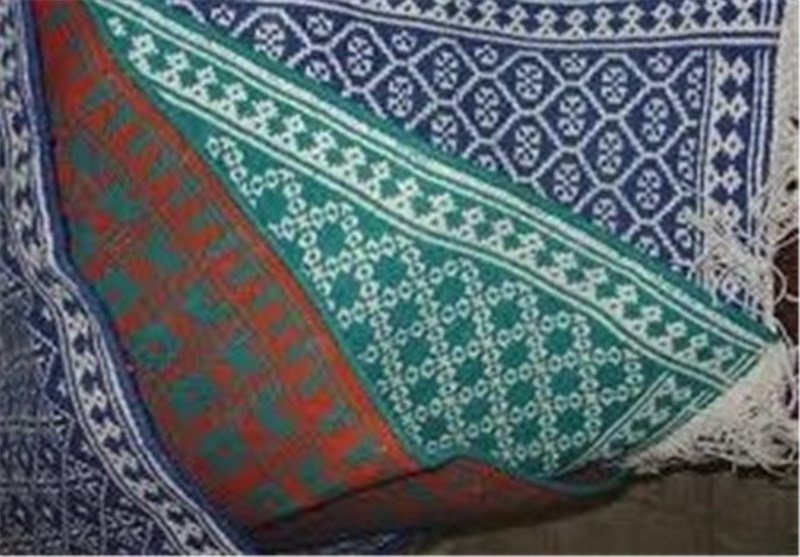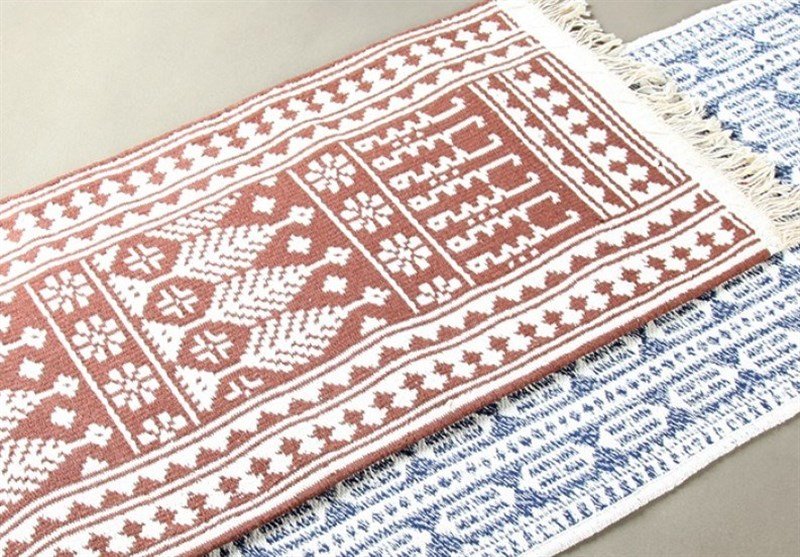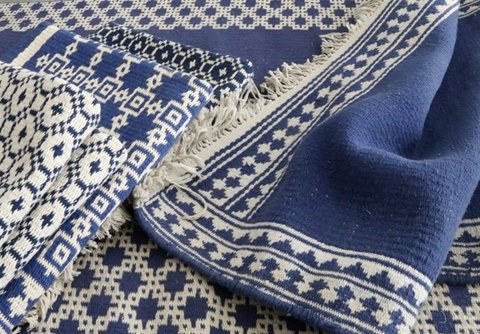This light carpet has proven to be one of the most suitable and most enduring floor coverings, especially in desert areas.
Famous names in this hand-made traditional industry include: Naftal, Pert Toureh, Zolfak, Rokneddin, small eight-sided and large eight-sided zilus, Banrumi and Kelid. The oldest zilu dating back to many centuries ago, is presently available for visiting in Congregational Mosque of Meibod.
Most people can tell the difference between Zilu and Kilim, since the two hand-woven products have major differences in their raw materials and also in their weaving styles.

There are complicated weaving techniques in Zilu, ones which are rarely seen in Kilim, or in any other hand-woven product. Zilu, since it’s made of cotton, suits an agricultural and village lifestyle perfectly, whereas Kilim is more adaptable to livestock farming and nomadic lifestyles.
Kilim is made of wool, and is thus suitable for cold regions. Zilu, with cotton thread as its base material, is more appropriate for hot regions, especially on the borders of the desert. It seems, however, that Zilu weaving is at a more developed stage than Kilim.
Zilu mainly uses geometric patterns, and sometimes the designs take the form of inscribed tablets.
Contrary to other Iranian carpet types, Zilu has a limited variety of colors. The colors which are used, like those in other regions, were locally produced.
Generally, Zilu is categorized into three types based on color and function. White and blue ones are mainly used in mosques and holy places. The red and blue ones are used inside houses, while green and red ones are of the highest quality.

Source: Iran Gazette, IFP News


Your Comment